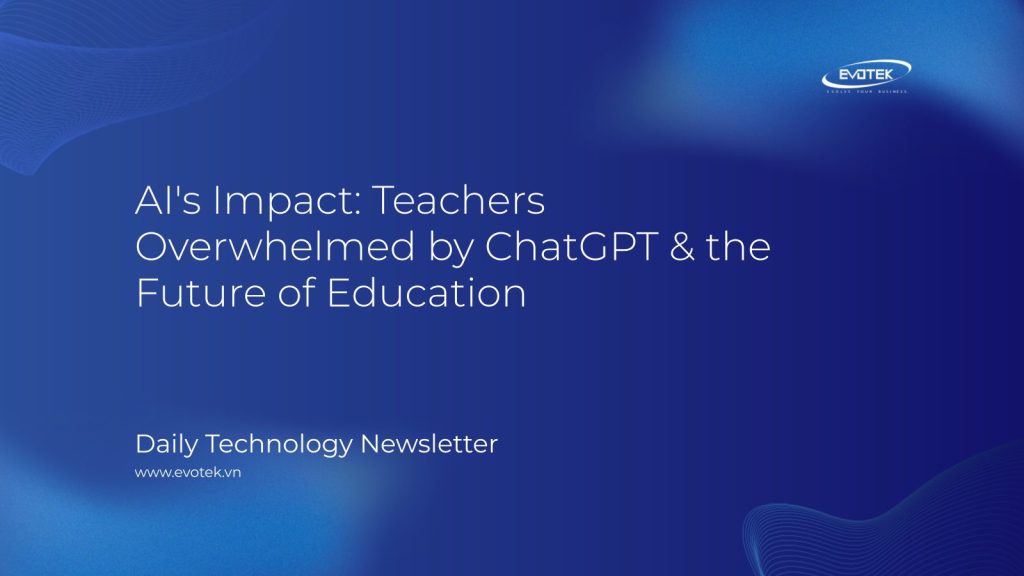Teachers are expressing serious concerns about the impact of AI tools like ChatGPT on their ability to teach and assess student work. A recent report from 404 Media highlights the growing anxiety among educators as they grapple with the challenges posed by these technologies.
The Rise of AI-Assisted Cheating
Educators report a surge in students using AI to complete assignments, leading to what one teacher described as grading “hybrid essays half written by students and half written by robots.” This makes it difficult to accurately assess student understanding and effort.
Erosion of Critical Thinking
Teachers are also worried about the long-term effects of AI on students’ critical thinking skills. As one high school teacher noted, students are increasingly reliant on AI for information and struggle to form original thoughts or engage in meaningful discussions.
The Need for Adaption
Many educators are now rethinking their teaching methods and assessment strategies to combat AI-driven plagiarism. This includes shifting towards in-class writing assignments and oral examinations. Some teachers are experimenting with AI tools in the classroom, but report a growing sense of frustration as students struggle to use the tools in a critically engaged way.
Is AI making teachers’ jobs ‘bullshit’?
For many, the increased time spent policing AI use detracts from time spent teaching, and makes it harder to know if the students are learning, or simply repeating what AI has written. As one teacher put it, they spend “more and more about how much time I am almost certainly spending grading and writing feedback for papers that were not even written by the student. That sure feels like bullshit.”
Selected Teacher Perspectives
- Robert W. Gehl (York University): “AI tools are ubiquitous… I think generative AI is incredibly destructive to our teaching of university students…It has made my job much, much harder.”
- Kaci Juge (High School English Teacher): “How do I remain ethical in creating policies? How do I begin to teach students how to use AI ethically?”
- Kate Conroy (12th Grade English Teacher): “I am devastated by what AI and social media have done to them. My kids don’t think anymore. They don’t have interests.”
- John Dowd (Higher Education): “LLMs have absolutely blown up what I try to accomplish with my teaching.”
The Path Forward
The rise of AI in education requires a thoughtful and proactive response. Educators, policymakers, and technology developers must work together to find ways to harness the potential benefits of AI while mitigating its risks. This includes developing clear guidelines for AI use, promoting digital literacy, and fostering a culture of academic integrity.

 日本語
日本語 한국어
한국어 Tiếng Việt
Tiếng Việt 简体中文
简体中文